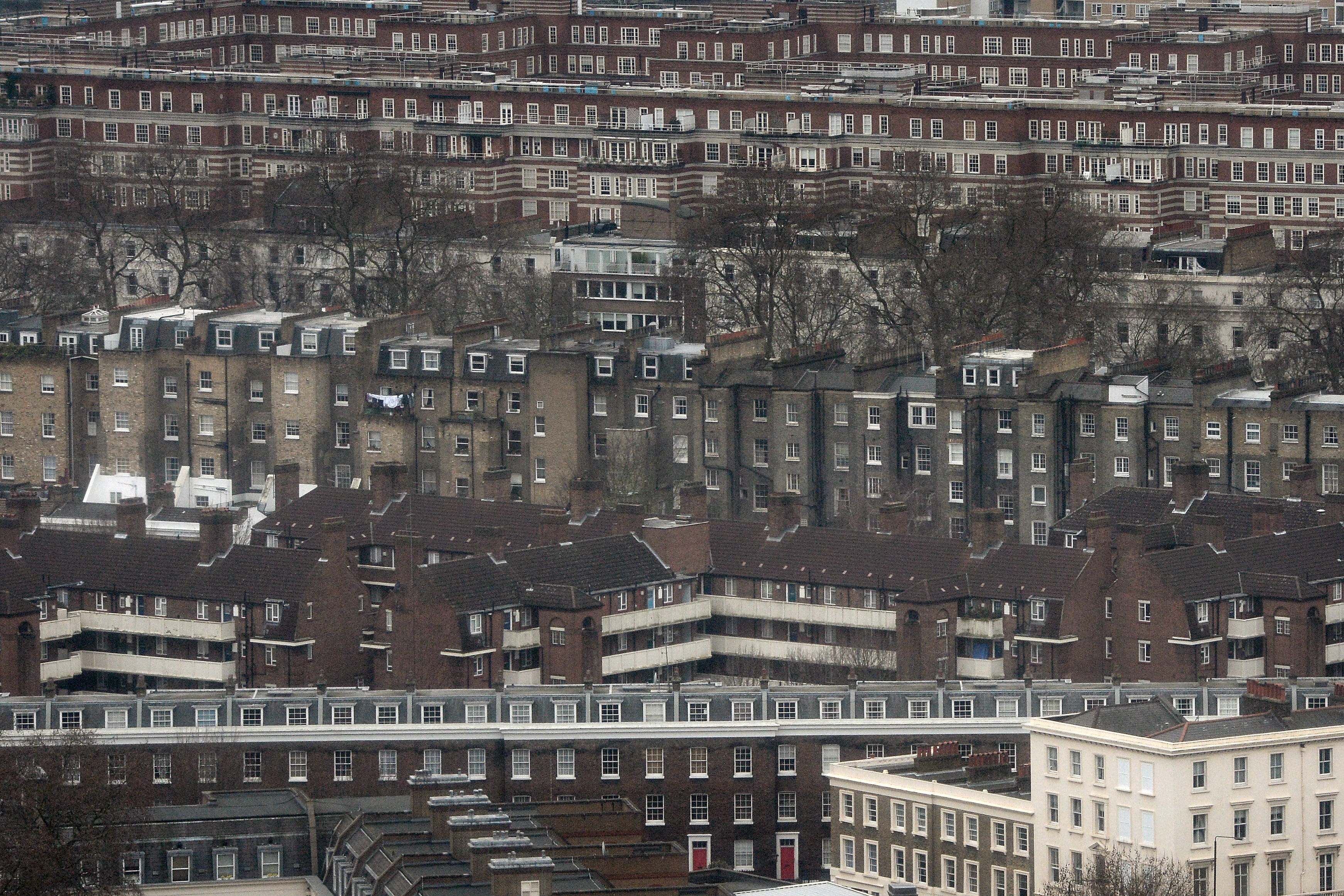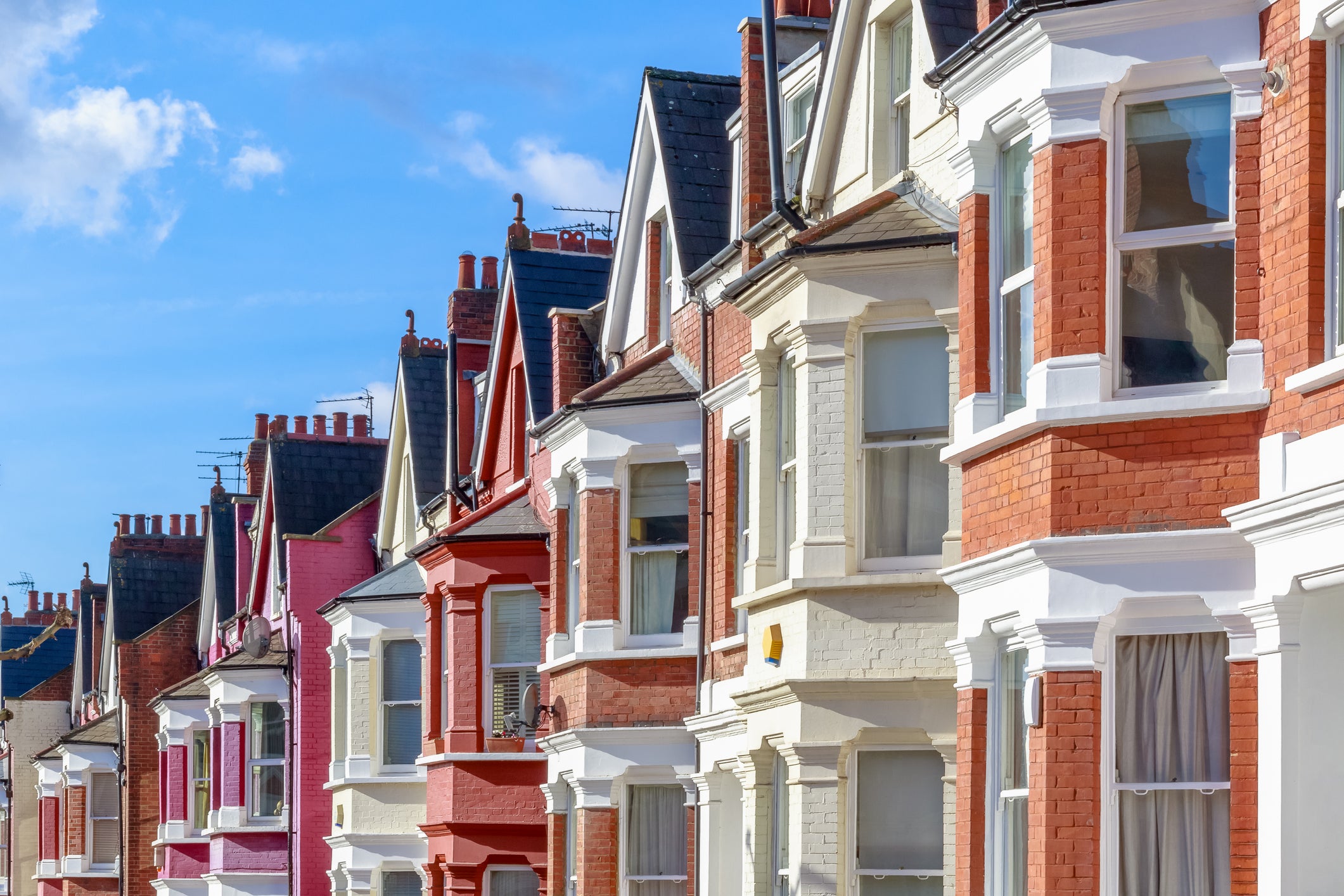UK ‘hurtling into mortgage disaster’ as rates near highs seen during Truss turmoil
‘No one’s at the helm of the ship, we don’t know where we’re going to end up,’ warns one mortgage broker
Your support helps us to tell the story
From reproductive rights to climate change to Big Tech, The Independent is on the ground when the story is developing. Whether it's investigating the financials of Elon Musk's pro-Trump PAC or producing our latest documentary, 'The A Word', which shines a light on the American women fighting for reproductive rights, we know how important it is to parse out the facts from the messaging.
At such a critical moment in US history, we need reporters on the ground. Your donation allows us to keep sending journalists to speak to both sides of the story.
The Independent is trusted by Americans across the entire political spectrum. And unlike many other quality news outlets, we choose not to lock Americans out of our reporting and analysis with paywalls. We believe quality journalism should be available to everyone, paid for by those who can afford it.
Your support makes all the difference.The UK is “hurtling headlong into a mortgage disaster”, experts have told The Independent, as average rates neared levels not seen since the turmoil after Liz Truss’s disastrous mini-Budget.
Bracing homeowners for further “pain” if the Bank of England raises its base rate for the 13th consecutive time on Thursday as expected, brokers likened the now “extremely volatile” mortgage market to that seen last September – only this time with “no one to sack”.
As average rates for a two-year deal topped 6 per cent for the first time this year on Monday, Rishi Sunak appeared to rule out any extra support for struggling homeowners, insisting to ITV that he would “stick to the plan” to halve inflation and urging banks to offer “bespoke support” to those who need it.
But as major mortgage lenders continued to pull deals and hike interest with just a few hours’ notice on Monday – with TSB the latest to do so – experts warned that “no one is at the helm of the ship”, as they urged ministers to act.
Calling on the PM to get a taskforce of banks and stakeholders “around the table” as during the financial crisis – and for lenders to give at least 24 hours’ notice when pulling deals – mortgages adviser Riz Malik told The Independent: “My big concern is that we’re just riding the market.
“The stocks market and gilts market is determining what’s happening, and it’s just the ride that we’re going on that seems to be: no one’s at the helm of the ship, we don’t know where we’re going to end up.”
“If we leave this to the market, and the momentum continues, then all that’s going to happen is we’re going to start seeing an increase in arrears, and that’s going to lead on to repossessions – and that’s the last place that we all want to be in,” added Mr Malik, founder of R3 Mortgages.
Average two-year rates hit 6.47 per cent in December following Ms Truss’s mini-Budget last year, but had been steadily dropping until last month’s disappointing inflation figures. Previously, rates had not surpassed 6 per cent since November 2008.
Warning of a “perfect storm” facing homeowners already “battered” by soaring energy bills and food prices, he expressed concern over even those on high salaries “panicking” and locking into unsuitable long-term deals, adding: “This isn’t just a certain demographic, this is hitting everyone.”

Mr Malik said he feared that increasing reliance on overdrafts and credit to pay mortgage costs could see banks tighten the lines of available credit, as during the financial crisis, adding: “That’s when the turbulence will start.”
Even when rates do come down, people could still be left paying higher premiums, he suggested, with people potentially being pushed into more costly loan-to-value brackets if house prices fall, or struggling to refinance if their credit rating is damaged by falling behind on mortgage payments.
Lewis Shaw, of Riverside Mortgages, warned that “as mortgages become more expensive, the bite it will take out of prospective purchasers’ budgets will inevitably show up in falling house prices”.
“The problem is that with the time it takes data to feed through in the property and mortgage market, by the time you find out if you’ve made a mistake, it’s too late as you’re in the property,” Mr Shaw told The Independent.
“The mortgage market is extremely volatile and is a re-run of the mini-Budget debacle, except this time, there’s no one to sack,” he said, adding: “We’re hurtling head-long into a mortgage disaster unless we get intervention from either the Bank of England or government.
“It’s odds-on that the base rate will rise on Thursday, and until money markets see positive news that inflation is beaten and on its way down, this will persist.”
One 46-year-old told The Independent of being forced to sell their “forever home”, having burned through their savings trying to keep up with their mortgage after becoming unemployed between March 2018 and March 2022.

Katy (whose name has been changed), from West Lothian, who now works part-time for a charity, said her mortgage cost just under £300 a month on a two-year fixed term contract of 1.99 per cent between 2019 and 2021. Her next two-year fix in 2021 at 1.79 per cent made her bill “only marginally cheaper”.
Katy put her home on sale in November after being forced to ask her 73-year-old mother for help with bills. She said: “It was meant to be my forever home. But I was worrying every time I went into the house. Is something going to break down? I couldn’t afford to get anything repaired.”
Her fears were cemented when she fell into arrears overdraft in January this year. “It scared me and I just wanted to get out of this household,” she said, describing her relief when her house was sold in February: “I don’t have that hanging over me now.”
Fears over mortgage pain have prompted some calls for the Bank of England not to raise interest rates on Thursday, with former deputy governor Sir Howard Davies suggesting the bank could “wait a bit” for its most increases to have an impact on inflation.
Warning of “hideous consequences” if the rate rises another 0.25 points to 4.75 per cent, Tory MP Lucy Allen said: “Have they really thought about what this means for the housing market and the wider economy and those scrambling to sell their homes while they still can?”
Martin Lewis, the leading consumer champion, criticised both the government and the financial sector on Monday for not taking stronger action to protect mortgage-payers – dismissing chancellor Jeremy Hunt’s December summit as “a missed opportunity talking shop”.
“The time bomb has exploded, and we’re scrambling about what to do,” he said, calling for “political pressure” on banks to close the gap “between what lenders are charged and savers paid”.




Join our commenting forum
Join thought-provoking conversations, follow other Independent readers and see their replies
Comments